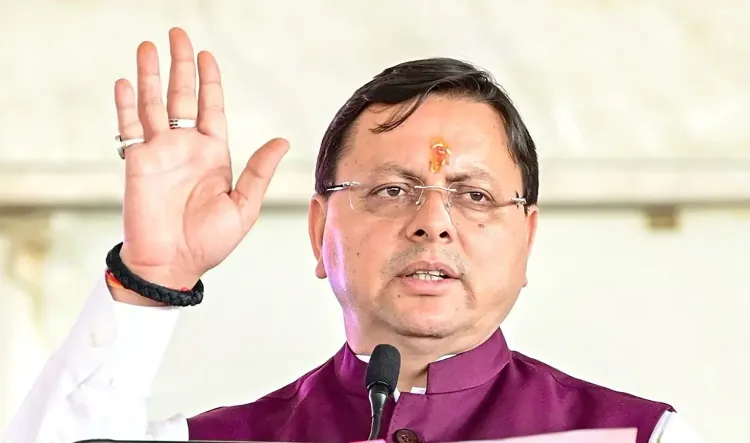Has the Uttarakhand Government Approved the 'Devbhoomi Parivar Yojana'?

Synopsis
Key Takeaways
- Unique Family IDs for every household.
- Streamlined access to government benefits.
- Real-time visibility of entitlements.
- Focus on transparency and empowerment.
- Collaboration among various government departments.
Dehradun, Nov 12 (NationPress) In a transformative cabinet meeting aimed at improving governance and public welfare, the Uttarakhand Cabinet has provided in-principle approval for the introduction of the "Devbhoomi Parivar Yojana" (Devbhoomi Family Scheme).
This forward-thinking initiative aims to meticulously identify and register every family in the state, establishing a cohesive digital framework for the effective delivery of government benefits.
The scheme's fundamental goal is to thoroughly identify families throughout Uttarakhand, assign them unique family identification numbers (Family IDs), and link these IDs with various central and state welfare programs.
By implementing this approach, the government seeks to ensure direct, targeted, and streamlined access to entitlements, thereby eliminating inefficiencies and leakages in the current system.
The planned "Devbhoomi Parivar Yojana" will compile a comprehensive database of all households through a rigorous verification process.
Each family will be assigned a unique Family ID, acting as a digital key to unlock benefits from multiple schemes. This integration will enhance existing beneficiary databases, allowing families to view all eligible programs on a single, easily accessible dashboard.
Essential features include real-time tracking of availed benefits and pending entitlements, enabling families to see how many schemes they have utilized and which ones are still available. This promotes transparency and empowers citizens.
"This initiative will transform welfare delivery, ensuring that no eligible family is overlooked," stated a senior official following the cabinet meeting.
The cabinet's endorsement, announced today, signifies the official commencement of the identification initiative.
Implementation will require collaboration among various departments, including Revenue, Panchayati Raj, and Social Welfare, utilizing AI-driven tools for data accuracy and fraud prevention. The initial phases will focus on urban and rural enumeration through door-to-door surveys and digital portals for self-registration.
Chief Minister Pushkar Singh Dhami praised the scheme as a "game-changer for Devbhoomi," highlighting its importance for inclusive growth.
"By linking Family IDs to schemes such as PMAY, Ayushman Bharat, and state-specific programs, we aim to deliver direct benefits without intermediaries," he remarked.
Experts anticipate that the yojana will enhance efficiency, lessen administrative burdens, and encourage data-driven policymaking.
Given Uttarakhand's varied geography and the logistical challenges it presents, the government plans to utilize mobile applications and AI analytics for effective execution.
Pilot testing is expected to commence in select districts soon, with the aim for statewide implementation within the next fiscal year.
This initiative aligns with the national movement toward digital governance, positioning Uttarakhand as a model for family-oriented welfare systems.
As families eagerly await their unique IDs, the "Devbhoomi Parivar Yojana" promises a more interconnected and equitable future for residents of the hill state.









